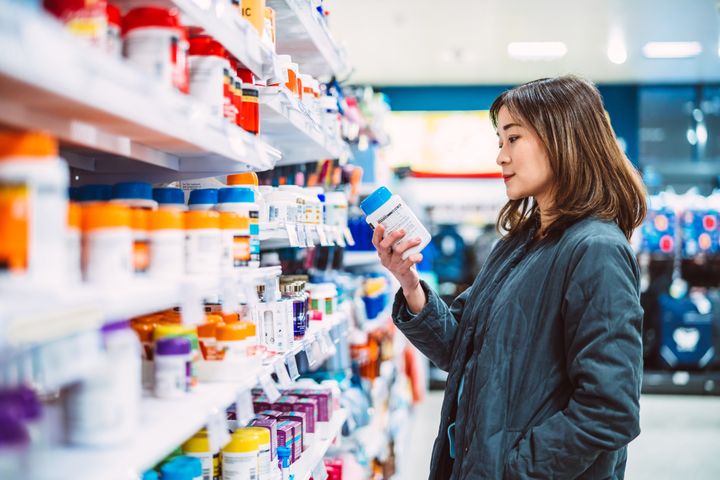There are thousands of vitamin manufacturers in the United States. Pills and capsules, liquids and powders are available. They come in boxes, bottles, pill packs and bags. With so many options, it can feel impossible to know which brand to choose. What makes one better than the other?
of the Food and Drug Administration Dietary supplements are not evaluated before they go on the market, which means there is little oversight of their effectiveness and safety. It’s also not clear whether the vitamins actually contain the ingredients they claim — and many Studies Found that there was a big difference between what was in the pill and what was listed on the package label.
As a result, there is no easy way to determine what the top tier is. “You can’t look at the bottle and the price and say, ‘Well, it’s low quality because it’s cheap.’ Mehtab JafariProfessor of Pharmaceutical Sciences at the University of California, Irvine School of Pharmacy and Pharmaceutical Sciences.
That said, keep a few things in mind when shopping for a good vitamin. Here’s what you should consider:
What makes vitamins even more expensive?
In general, there is likely little difference between an inexpensive vitamin and an expensive vitamin Ibn Raficlinical pharmacy specialist at University Hospitals in Ohio. Prices vary based on what the supplement is, what the ingredients are, and what health condition it is designed to help. Factors like good packaging also come into play. (Who hasn’t drunk from a beautiful glass bottle before?)
“Like brand-name and generic prescription drugs, cheap and high-quality vitamins advertise the same supplements,” Rafi said.
Most scientists don’t know about supplementation. It’s not clear, for example, how different formulas affect the way your body absorbs nutrients or how, in fact, natural ingredients differ from synthetic ones. “We don’t really have education,” Jafari said.
That said, there are some factors that make for the best vitamin. For example, you want to choose the products that are made with it High quality ingredients And doesn’t have a ton of fillers, like Soybean oilor pollutants such as pesticides or heavy metals (think: mercury or lead).
Trusted manufacturers – ie TheralogixFor example, or Made by nature – Their websites detail how the ingredients are sourced and what their manufacturing process looks like.
It is also important to have vitamins the right food. A low dose may not have the desired effect and a very high dose may cause serious health complications.
“There are many cases of drug-induced liver damage from supplements that contain high doses of vitamins or other ingredients that are harmful to the liver,” Rafi said.
At the end of the day, however, a higher price tag doesn’t automatically mean it’s better. “Just because a supplement is more expensive doesn’t mean it’s high quality,” Jaffery said.

Photos by Tang Ming Tong via Getty Images
How can you say that the vitamin is of high quality?
It is important to consult a doctor, pharmacist or nutritionist before you start taking vitamins. There are a few drawbacks and Health conditions Supplements are recommended, incl pregnancyHeart disease and diabetes. But people who are otherwise healthy and eat a balanced diet probably don’t need vitamins, Jaffery said. A healthcare provider can determine whether you might benefit from taking a supplement and share a list of recommended brands.
The best way to determine if a vitamin is legitimate: see if it’s rated by A Third party testing company. “In my opinion, a high-quality vitamin would be one that is reviewed by an independent third party for quality assurance and contains minimal fillers,” said Rafi.
It is time consuming and expensive for manufacturers to have a third party company – ie United States Pharmacopoeia (USP) National Institutes of Health (NSF) or ConsumerLab.com – Test and verify that the products contain the ingredients and dosages listed on the package label.
“A dietary supplement company that makes millions of dollars a year, that’s really the least they can do. To show customers that they care about quality,” Jaffery said.
So, look for the USP or NSP certification badge on the package label. Jaffrey also recommends checking the FDA website If the producer has ever received a seizure letter or order. If so, it’s probably better to choose another product.
Finally, do your research. Research scientific studies on the nutrients you’re interested in, check the manufacturer’s website, and when in doubt, ask a medical professional to weigh them. There is a lot of noise in the world of supplements, but if you do your due diligence, you can find products that have been rigorously tested and widely trusted.
#difference #cheap #expensive #vitamins